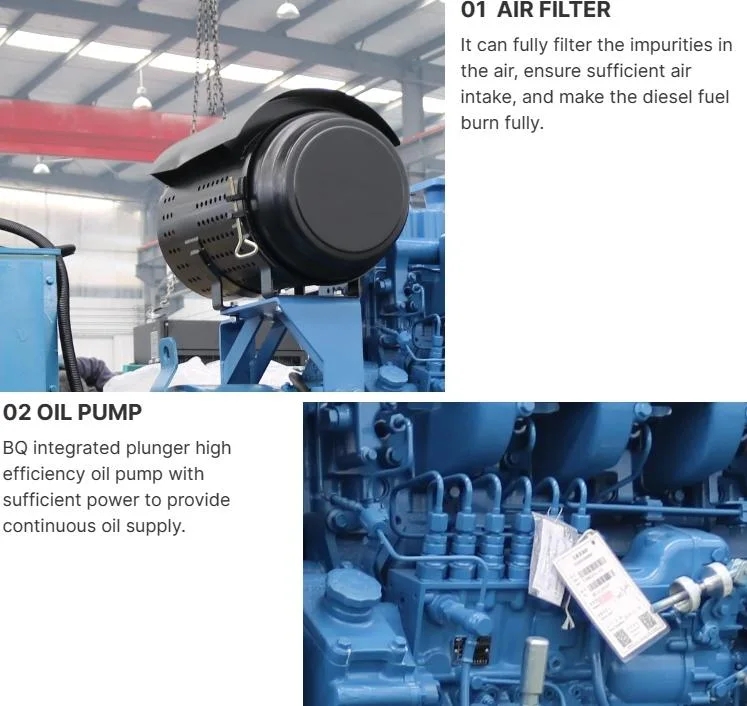Waters
0 Course Enrolled • 0 Course CompletedBiography
Ensuring Life Safety The Role of Diesel Generators in Life Safety Systems
Introduction
In modern society, the importance of life safety systems cannot be overstated. Whether in commercial buildings, hospitals, data centers, or other critical facilities, these systems are essential for protecting lives and property in the event of emergencies such as power outages, fires, and natural disasters. One crucial component of life safety systems is the diesel generator, which serves as a reliable backup power source to ensure that critical systems remain operational during power disruptions. In https://www.lkpowerplant.com/400kw/ , we will explore the role of diesel generators in life safety systems, their key benefits, and best practices for their installation and maintenance.
Importance of Diesel Generators in Life Safety Systems
Life safety systems are designed to provide a safe environment for occupants and ensure the continuity of critical operations during emergencies. These systems typically include fire alarms, emergency lighting, smoke evacuation systems, elevators, communication systems, and more. In the event of a power outage or failure, these systems must continue to function to facilitate safe evacuation, rescue operations, and emergency response.
Diesel generators play a vital role in ensuring the reliability and resilience of life safety systems. Unlike grid power, which is susceptible to outages due to natural disasters, equipment failures, or other unforeseen events, diesel generators provide an independent and self-sufficient power source. By automatically switching on within seconds of a power interruption, diesel generators ensure that critical systems remain operational, minimizing disruptions and safeguarding lives and property.
Key Benefits of Diesel Generators in Life Safety Systems
1. Reliability: Diesel generators are known for their reliability and durability, making them an ideal choice for backup power in life safety systems. With proper maintenance and monitoring, diesel generators can provide continuous power for extended periods, ensuring the uninterrupted operation of critical systems.
2. Fast Response: Diesel generators are designed to start and ramp up to full power within seconds of a power outage, providing immediate backup power when needed. This rapid response time is crucial in emergencies where every second counts and can make a significant difference in ensuring the safety of occupants.
3. Fuel Availability: Diesel fuel is widely available and can be stored on-site in large quantities, providing a reliable fuel source for diesel generators. This ensures that the generator can continue to operate for an extended period without the need for frequent refueling, making it suitable for prolonged power outages.
4. Longevity: Diesel generators are built to last and can withstand harsh operating conditions, making them a long-term investment for life safety systems. With proper maintenance and care, diesel generators can provide reliable backup power for many years, offering peace of mind to facility operators and occupants.
5. Load Capacity: Diesel generators are available in a wide range of sizes and capacities to meet the specific power requirements of different life safety systems. Whether powering a small office building or a large hospital, diesel generators can be sized accordingly to ensure adequate backup power supply.
Best Practices for Diesel Generator Installation and Maintenance
1. Site Selection: When installing a diesel generator for life safety systems, careful consideration should be given to the location of the generator. It should be placed in a well-ventilated area away from combustible materials and with easy access for maintenance and refueling.
2. Fuel Storage: Adequate fuel storage is essential for diesel generators to ensure continuous operation during extended power outages. Fuel tanks should be properly sized and located in compliance with local regulations to minimize the risk of fuel spills or leaks.
3. Regular Maintenance: Diesel generators require regular maintenance to ensure optimal performance and reliability. This includes routine inspections, testing, and servicing of key components such as the engine, fuel system, cooling system, and electrical connections.
4. Load Testing: Periodic load testing is essential to verify the readiness of the diesel generator and its ability to handle the full load of the life safety systems. Load testing should be conducted at regular intervals to identify any potential issues and ensure the generator's proper functioning.

5. Monitoring and Remote Access: Implementing a remote monitoring system for the diesel generator can provide real-time data on its performance, fuel levels, and alarms. Remote access allows facility operators to monitor the generator status from anywhere and take prompt action in case of any issues.
Conclusion
In conclusion, diesel generators play a critical role in ensuring the reliability and resilience of life safety systems in various facilities. By providing immediate backup power in emergencies, diesel generators help safeguard lives and property, minimize disruptions, and ensure the continuity of critical operations. Facility operators and building owners must prioritize the installation, maintenance, and monitoring of diesel generators to ensure their optimal performance when needed. By following best practices and industry standards, diesel generators can serve as a reliable and effective backup power source for life safety systems, contributing to a safer and more secure built environment.
